Mark McNeilly has extracted from Sun Tzu's The Art of War the six concepts most applicable to modern warfare, making them easy to understand and apply to military situations. Drawing on a wealth of fascinating historical examples, McNeilly shows how these six principles might be used in modern wars and how they can provide insight into current affairs, such as the war on terrorism and China's increasingly important strategic and military role in the world. This updated edition reflects on all that has happened in the past ten years, including the wars in Iraq and Afghanistan, the challenge of Iran, the "Arab Spring", and the continued rise of China.
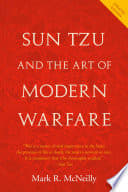
Average Rating
Informations
About the author
Mark McNeilly
Author
Sun Tzu and the Art of Modern Warfare
by Mark McNeilly
Books Like Sun Tzu and the Art of Modern Warfare
If you're looking for books similar to Sun Tzu and the Art of Modern Warfare, here are some recommendations based on themes, tone, and narrative style.
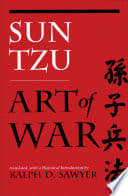
The Art of War
Sun Tzu
The original classic military strategy text that inspired McNeilly's work. This ancient Chinese treatise provides timeless principles of strategic thinking and conflict management. It offers profound insights into military tactics, psychological warfare, and strategic planning. The book remains highly influential in military, business, and political circles worldwide. Its concise wisdom continues to guide leaders and strategists across various disciplines.
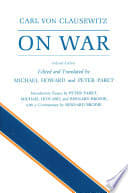
On War
Carl von Clausewitz
A comprehensive philosophical study of warfare and military strategy. Clausewitz explores the complex relationship between politics and military conflict. The book provides deep analytical insights into the nature of war, strategic thinking, and military decision-making. It offers a systematic approach to understanding military theory and strategic principles. Clausewitz's work is considered a foundational text in military strategy and political philosophy.
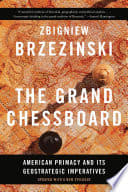
The Grand Chessboard
Zbigniew Brzezinski
A strategic analysis of global geopolitical dynamics, focusing on American global leadership. Brzezinski examines the complex interactions between major world powers and strategic regions. The book provides deep insights into international relations and strategic positioning. It offers a comprehensive view of global power dynamics and strategic challenges. Brzezinski's work is crucial for understanding modern geopolitical strategy.
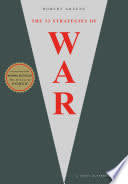
The 33 Strategies of War
Robert Greene
A modern exploration of strategic thinking drawing from historical examples across various domains. Greene analyzes military, political, and personal strategies for overcoming challenges and achieving objectives. The book provides practical insights into strategic maneuvering and psychological warfare. It offers a contemporary interpretation of timeless strategic principles. Greene's work bridges historical strategy with modern applications.
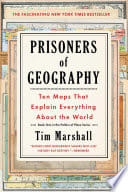
Prisoners of Geography
Tim Marshall
An exploration of how geographical features shape national strategies and global interactions. Marshall examines how physical geography influences political, economic, and military strategies. The book provides deep insights into the relationship between geography and strategic decision-making. It offers a unique perspective on global strategic challenges. Marshall's work is essential for understanding geopolitical dynamics.
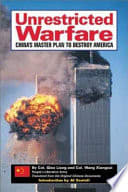
Unrestricted Warfare
Qiao Liang and Wang Xiangsui
A Chinese military strategy book exploring non-traditional warfare methods. The authors discuss strategies beyond conventional military confrontation, including economic, technological, and psychological dimensions. The book provides insights into modern strategic thinking and asymmetric conflict approaches. It offers a provocative perspective on global strategic interactions. Unrestricted Warfare challenges traditional understanding of military strategy.
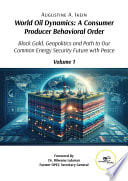
Geopolitical Dynamics
Thomas P.M. Barnett
An analysis of global strategic interactions in the modern geopolitical landscape. Barnett examines how nations develop and implement strategic approaches in a complex, interconnected world. The book provides insights into military, economic, and diplomatic strategies across different regions. It offers a comprehensive view of contemporary global strategic challenges. Barnett's work helps readers understand modern geopolitical complexities.
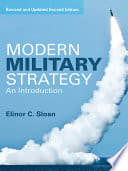
Military Strategy
John A. Nagl
A contemporary examination of military strategy in the modern world. Nagl explores counterinsurgency, adaptive military approaches, and strategic thinking in complex environments. The book provides practical insights into modern military challenges and strategic adaptation. It offers a nuanced understanding of military strategy beyond traditional paradigms. Nagl's work is essential for understanding contemporary military thinking.
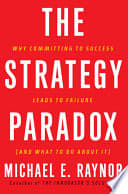
The Strategy Paradox
Michael E. Raynor
An exploration of strategic decision-making under uncertainty. Raynor examines how organizations and leaders can develop effective strategies in unpredictable environments. The book provides insights into strategic planning, risk management, and adaptive thinking. It challenges traditional approaches to strategy and offers innovative perspectives. Raynor's work is valuable for understanding strategic complexity.
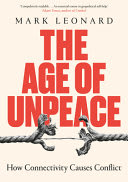
The Age of Unpeace
Mark Leonard
An analysis of global strategic challenges in the 21st century. Leonard explores how interconnectedness creates new forms of global conflict and strategic interactions. The book provides insights into modern geopolitical dynamics and emerging strategic challenges. It offers a fresh perspective on international relations and global strategic thinking. Leonard's work helps readers understand contemporary global complexities.
No account connected — sign in to comment.
